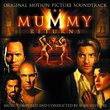| All Artists: James Horner Title: Avatar Members Wishing: 2 Total Copies: 0 Label: Atlantic Original Release Date: 1/1/2009 Re-Release Date: 12/15/2009 Album Type: Soundtrack Genres: Pop, Soundtracks Style: Number of Discs: 1 SwapaCD Credits: 1 UPC: 075678957611 |
Search - James Horner :: Avatar
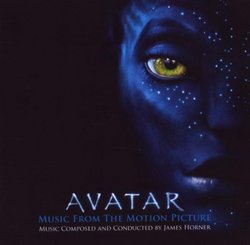 | James Horner Avatar Genres: Pop, Soundtracks
Atlantic Records has announced the upcoming release of AVATAR Music From The Motion Picture Music Composed And Conducted By James Horner the official score album companion to 20th Century Fox's hugely anticipated 3-D sci-f... more » |
Larger Image |
CD DetailsSynopsis
Product Description Atlantic Records has announced the upcoming release of AVATAR Music From The Motion Picture Music Composed And Conducted By James Horner the official score album companion to 20th Century Fox's hugely anticipated 3-D sci-fi action-adventure. The album, which features music composed and conducted by Academy Award-winner James Horner (Titanic, A Beautiful Mind, An American Tail), will be released physically on December 15th. Avatar arrives in theatres everywhere on December 18th. Written and directed by Academy Award-winner James Cameron (Titanic, Aliens, The Terminator, Terminator 2: Judgment Day, True Lies, The Abyss), Avatar takes us to a spectacular new world beyond our imagination, where a reluctant hero embarks on a journey of redemption and discovery as he leads a heroic battle to save a civilization. Cameron first conceived the film 14 years ago, when the means to realize his vision did not yet exist. Now, after four years of actual production work, Avatar delivers a fully immersive cinematic experience of a new kind, where the revolutionary technology invented to make the film disappears into the emotion of the characters and the sweep of the story. Avatar stars Sam Worthington (Terminator Salvation), Zoë Saldana (Star Trek), Michelle Rodriguez (Lost, Fast & Furious), and Sigourney Weaver (Aliens, Galaxy Quest). The film is produced by James Cameron and Jon Landau. Similarly Requested CDs
|
CD ReviewsA Solid Score With a Few Drawbacks Andrew Hitchcock | 12/16/2009 (3 out of 5 stars) "Preface: James Horner... You either love him or hate him. The film score fan world is clearly divided between these 2 camps. I've never heard Horner described as just ok or average. Depending on who you ask, he's the greatest thing since sliced bread or the scum of the Earth. I'm a Horner fan. I think he has the rare ability to tell a story with his music and be able to evoke emotion with his music alone, not requiring a visual aid to accompany it. This is special. Such greats as Williams and Barry also have this rare ability and this puts James Horner in a select group. However, this is good James. Bad James shamelessly lifts parts from his prior scores and inserts them, sometimes note for note, into his new scores. He also has the tendency to lift parts of classical pieces and use them as well, almost note for note. The Horner fans are able to overlook this stuff because the purely original, new, and innovative parts of his scores more than make up for the already mentioned "Hornerisms". The Review: Avatar, while a solid and fitting score, does not live up to its potential. Scores are about giving a movie a unique musical identity. In this aspect it fails. Most of the themes and motifs presented can be clearly traced back to many prior Horner scores. I shouldn't have images of Glory, Willow, Titanic, The Four Feathers, etc in my head while I am watching Avatar. This can be really distracting to the viewer. If you aren't familiar with this prior material, then this score may rate higher with you. The main theme begins with the exact timing and first 3 notes of the love theme from Titanic. Even without considering the slight lift of the Titanic theme, this main recurring theme is one of the most underdeveloped themes Horner has ever put to a movie. It hardly qualifies as a theme. I guess this is where I can't support the self rips. Usually when lifting his own material he develops it further into something grander. Such is not the case here. Having a year to develop this score, I ask... is this the best you can do? While weak in themes and full of self rips, the Avatar score does have a bit going for it. The latter portions of the score have some top notch action music. Easily the scores highlight is the track "War". I'm a big fan of the choir in movie scores and Horner employs one in Avatar very effectively. What pulls this score from a 2 rating to a 3 rating are 2 things...orchestration and production/mixing. Avatar is hands down one of the better orchestrated scores you will find. This isn't surprising given Horner's orchestration talents as he did do some of the orchestrations on this score. What a lush score, using so much different instrumentation! For you Horner fans, this score contains just about every instrument he has ever used in his prior works. He even got an acoustic guitar strum in, identical to the one that opens "The Mask of Zorro". Synths and electronics can dominate at times but they are not a detriment and add welcome depth. Being a Cameron film, you know sound quality would be a big thing. This music delivers. I can't recall a score that just jumped from the speakers like this one does. Just running it in 2 speaker stereo and you will feel like you are immersed in the music. So to wrap up, James Horner has written music for Avatar that undoubtedly fits the movie like a glove and will do its job. However, it just seems a bit uninspired and lazy in its composition. With really no movie music blockbusters over the last ten years, one has to wonder if Horner's tank has finally run out of gas. By all means buy this disc as there are enough positive things to justify the purchase. For those that are new to Horner, I would nudge you in the direction of "Legends of the Fall" or "Glory". " Science fiction epic that combines style and excitement with Jon Broxton | Thousand Oaks, CA | 12/15/2009 (4 out of 5 stars) "James Cameron makes a habit of being groundbreaking. Whether he is creating a planet full of ferocious xenomorphs in Aliens, experimenting with liquid metal robots in Terminator II, or making a realistic recreation of a sinking boat in Titanic, the Canadian director has always been at the forefront of cutting edge cinematic technology, pushing the envelope of what is creatively and technologically possible on the screen. His latest film, Avatar, continues that trend; with an estimated budget of $320 million, it's the most expensive film ever made, and looks set to become one of the biggest grossing films of all time too. The film's plot is deceptively simple. Set in a future where the Earth's natural resources have been depleted to the point where the planet is almost uninhabitable, human scientists find a distant planet called Pandora, which is rich in a rare mineral that can replenish the Earth's atmosphere and save humanity. The problem: Pandora is inhabited by a race of 10-foot tall, blue-skinned humanoid creatures called the Na'vi, who don't take kindly to an alien species coming and strip-mining their lush, beautiful planet. Needing a way to infiltrate Na'vi society, Earth's military leaders develop a technology that allows humans to assume control of genetically-bred Na'vi hybrid bodies - the `avatars' of the title. Jake Sully (Sam Worthington), a former marine paralyzed from the waist down after being injured in combat, is recruited to the secret program, having been lured by the prospect of being able to walk again via his avatar. Once on Pandora, and with orders to learn as much about the Na'vi in advance of a full-scale invasion, Jake finds himself being assimilated into their culture. However, rather than encountering a savage, primitive race, Jake falls in love with the Na'vi, their simple lives, their closeness to nature, and with Neytiri (Zoe Saldana), a Na'vi warrior princess. Before long, Jake finds himself torn between his duty to the military and his mission, and his new found respect for the peace-loving aliens. Despite having been dubbed `Dances With Smurfs' by some of the more unkind online bloggers, Avatar is nevertheless a thought-provoking mix of environmental awareness and full-blooded cinematic action that shares conceptual ideas with both Dances With Wolves and Starship Troopers (although it is less blatantly satirical than Robert Heinlein's classic novel), drawing thematic parallels with the European colonization of the Americas and the subsequent obliteration of native American culture, and asking audiences to examine their prejudices. For Avatar's music, Cameron once again turned to James Horner; the last time the pair worked together was on Titanic, for which Horner won his first (and, to date, only) Best Score Oscar. One of the stipulations Cameron gave to Horner was that he must not work on any other films during the period that Avatar was being made; as such, this is Horner's first score since The Boy in the Striped Pyjamas, which was completed in the spring of 2008. With an uncommonly long 18-month period in which to write his music, Horner worked closely with sound designer Christopher Boyes to develop an alien language for the Na'vi, which Horner would utilize for the choral parts of his score. He also spent a great deal of time creating a unique musical `sound palette' to represent the Na'vi culture, taking inspiration from everything from ancient Finnish woodwinds to Indonesian gamelan music, as well as inventing brand new percussion instruments from scratch, in an attempt to capture the visual `bioluminescence' of Pandora through music. The first thing that Horner's detractors will jump on is the fact that, for the 100th time, Horner has referenced some of his own earlier works. The main theme sounds like the main theme from The Four Feathers. Some of the percussive and vocal parts sound like the African music from Mighty Joe Young. Some of the action writing is similar to the action writing in Troy. Some of the vocal work will also remind you of Apocalypto. The synth programming is similar to the synth programming in Titanic, and one romantic theme is similar to the Rose theme from that score. Elsewhere he references scores as obscure as Where the River Runs Black and Thunderheart, especially in some of the ethnic woodwind phrasing and electronic rhythmic elements. Virtually the first thing you hear on the album, within the first 60 seconds of the first cue, is the four-note `danger motif' that has littered dozens and dozens of scores throughout his career. If, after 25 years, you still haven't reconciled yourself to this facet of Horner's musical personality and it still bothers you, don't buy the CD - unless you enjoy purchasing music that you know will outrage you, and you get your rocks off complaining about it on an internet message board. It's time to move on from this argument and just accept that this is how Horner works, and embrace instead his astounding dramatic sense, his boundless enthusiasm for the art, and his masterful command of an orchestra. Much of the first half of the score is concerned with setting the scene, and giving the Na'vi and their culture its musical identity. Tribal percussion, ethnic woodwinds, breathy wordless vocals and Native American-style chanting in the Na'vi language by Drea Pressley and Mark Edward Smith anchor the opening cue, "You Don't Dream In Cryo...". There's not a great deal of prominent thematic writing in the first few cues, which is unusual for a Horner score; instead, it concerns itself with abstract textures and voluminous percussion writing, and with layers of cool synths underpinning the orchestra, establishing a mood which is both alien and familiar. After a few moments of unusually comical pizzicato build-up, "Jake Enters His Avatar World" adopts an untouched, almost primeval sound, with breathy whispered vocal performances, Amazonian-style woodwind flutters, and more than a hint of danger through the use of Horner's familiar `crashing pianos' and some chaotic percussion writing. By the end of the cue, however, the music has embraced a sense of wondrous freedom, as though celebrating Jake's boundless enthusiasm at being set free in this remarkable new landscape. "Pure Spirits of the Forest" and "The Bioluminescence of the Night" have a shimmering, iridescent quality, and make excellent use of long-lined string writing underpinned by beds of soothing synths, often incorporating tribal rhythms, chanting vocals and eerie woodwind calls to add to the sense of alien mystique. There is a sense of calmness, and of peace about this music; it's the kind of music that conjures up images of starlit skies seen through shadowy treetops at night, or of a spiritual communion with nature. Even here, though, there is still danger lurking in the darkness, as the strident brass performances and guttural growls towards the end of "Pure Spirits of the Forest" attest. The first performance of the score's recurring main theme appears towards the middle of "Becoming One of the People; Becoming One With Neytiri"; this is the theme that is clearly modeled after the theme from The Four Feathers, and forms the cornerstone of the score's main emotional content, dealing with the developing romance between Jake and Neytiri. The lilt in the melody, and the passion in the writing, is palpable, and hugely rewarding. Towards the end of "Becoming One With Neytiri" there is a sublime romantic sequence for strings, piano and Tony Hinnigan's effortlessly expressive woodwinds that brings back wonderful memories of the William/Murron romance from Braveheart and the Jack/Rose romance from Titanic. The rest of this cue, and later cues such as "Climbing Up Iknimaya - The Path to Heaven" and "Jake's First Flight", are expansive celebrations of the Na'vi culture, with broad and joyous themes accentuated by all kinds of percussion and warm, almost child-like vocals. Despite a few superficial similarities to Brian Tyler's Children of Dune, this music succeeds in capturing the essence of the Na'vi, and their respectful symbiotic relationship with their world. It is worth noting that, in "Jake's First Flight", Horner cleverly re-orchestrates a variation on Col. Shaw's theme from his 1989 classic Glory into a vibrant, tribal celebration that is simply glorious. Things begin to turn ugly in "Scorched Earth", heralding the arrival of the humans on Pandora. From here on in, Horner's music returns to a more familiar orchestral palette, but adopts a harsher, more militaristic tone, a significantly larger brass section, and increased levels of dissonance. Some of the brass trills in "Scorched Earth" rekindle memories of the brutal Nockmaar music from Willow; the metallic percussion hits and thunderous ostinati in "Quaritch" are Horner trademarks, while the choral writing in the lavish and intense "The Destruction of Hometree" is the grandest Horner has written since Enemy at the Gates. Throughout all of these cues Horner maintains his use of the Na'vi vocals, overlaying the foreign chants over the music, often in synchronicity with the rhythms, often as a kind of lamenting counterpoint to the orchestral carnage, but always to great effect. Equally lamenting is the distressing vocal performance in "Shutting Down Grace's Lab" that recalls the great Rahat Nusrat Fateh Ali Khan's mournful howls in The Four Feathers, which gives the piece a unmistakable sense of overwhelming tragedy. The conclusion of the score is a 15-minute epic comprising "Gathering All the Na'vi Clans for Battle" and "War". It builds from a contemplative violin solo and a noble performance of the main theme, a moment of calm before an impending storm. Relentlessly building rhythms, more ethnic vocals, and huge performances of the main that seem to imply a sense of purpose and destiny eventually give way to thunderous brassy battle calls, thrusting percussion writing and heroic Na'vi war cries. As the final cue develops, it picks up a pulsating electronic undercurrent, as if pitting the unyielding, mechanized forces of humanity against the more earthy sounds of the Na'vi. As the piece reaches its conclusion, Horner begins to interpolate rousing fragments of the main theme into the action material, before ending with a reflective solo violin refrain which rounds out the score on a philosophical note. Having said all that, and despite understanding the reason why Horner wrote the score the way he did, the thing missing from Avatar - and the thing that stops it from getting truly top marks - is long-lasting memorability. While there are literally dozens and dozens of excellent individual moments dotted throughout the score, the sum of these parts never quite add up to the classic Avatar clearly wants to be. The main theme, while undeniably attractive, is not memorable enough to go down as a Horner standard. The ethnic vocals, while certainly effective, aren't as innovative or groundbreaking as Horner's 18-month research period would have us believe. The action material is certainly impressive, and will likely be remembered as the score's strongest part, but you need more than rousing action alone to create a balanced, strong album. And speaking of creating a balanced, strong album, listeners will most likely want to skip the quite awful song, "I See You", performed by British R&B artist and music reality show winner Leona Lewis. It's an over-processed, over-produced monstrosity with banal lyrics and an unfathomable internal tempo which, despite being based on Horner's main theme, completely loses its way as a romantic ballad. It's clearly intended to recapture the same buzz as Celine Dion/My Heart Will Go On, but is a significantly inferior song. Avatar is a strong score. Horner's dramatic sensibility can never be faulted, and his mastery over the instrumental palette at his disposal is second to none. Although its general air of over-familiarity gives his critics plenty of ammunition to trot out the tired old `self plagiarism' chestnut again, this should not dissuade admirers of Horner's work from seeking this out, because there is still a lot to admire here, and the positives vastly outweigh the negatives. However, perhaps a little inevitably, the score does not live up to the hype that preceded its release. It's not the best score of 2009 - it's not even in the top five - and will not go down in history as one of Horner's quintessential works, however much success the film itself attains." For your aural pleasure... J. Heyerdahl | Los Angeles, CA | 12/20/2009 (4 out of 5 stars) "Well, I must agree with some of the other reviewers: this is not an entirely original piece of work. Those of us who really appreciate film scores will be able to pick out recycled James Horner themes and cues throughout Avatar. However, despite this fact, I still found myself really enjoying the album as a whole. For me, the Avatar soundtrack is one of those few gems that gets better the more you listen to it. At first I was a little put-off by such heavy synthesizer use (which Horner is known for), but after listening to it again it grew on me. In my mind, the blend of heavy synth and orchestra paralleled the film's dichotomy of industry at odds with the natural world. Now, sure, I could be reaching there, but in a quirky way it does actually make sense. There could have been a bit more diversity among the themes and intimiate moments in the tracks. However, if you see the movie you'll notice it too is rather sparse on those softer moments between two characters where we delve into their motives, emotions, and history. The film's characters are rather one-dimensional (despite being in 3D), so it's no wonder the score doesn't offer as much complexity as we'd like. I wish the music were a little stronger to stand on it's own (I always feel the mark of a great piece of filmic scoring is one that can tell the story all on it's own). Still, this soundtrack is certainly not without it's key moments that completely sweep you into the music/story. To that effect, Avatar does accomplish a rather emulsifying experience (especially if you listen to it again and get past our always too-high initial expectations), but it could have gone just that extra step deeper."
|

 Track Listings (14) - Disc #1
Track Listings (14) - Disc #1
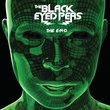
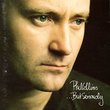


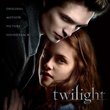

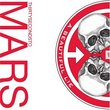
![Harry Potter and the Goblet of Fire [Original Motion Picture Soundtrack]](https://nationalbookswap.com/cd//m/35/3335/13253335.jpg)
